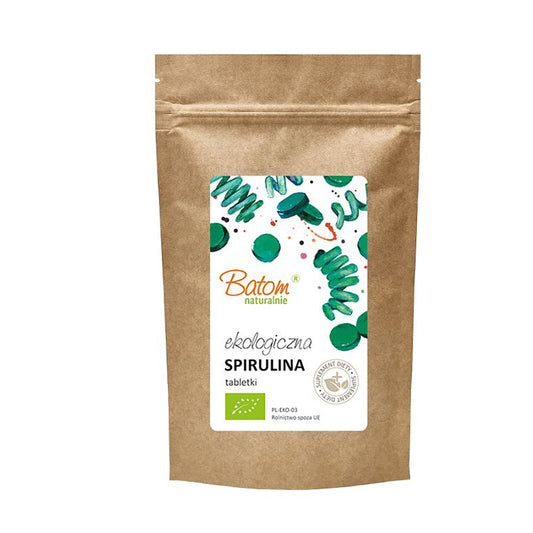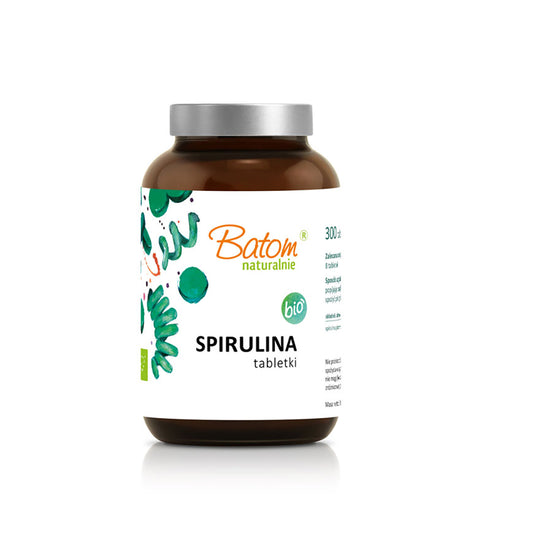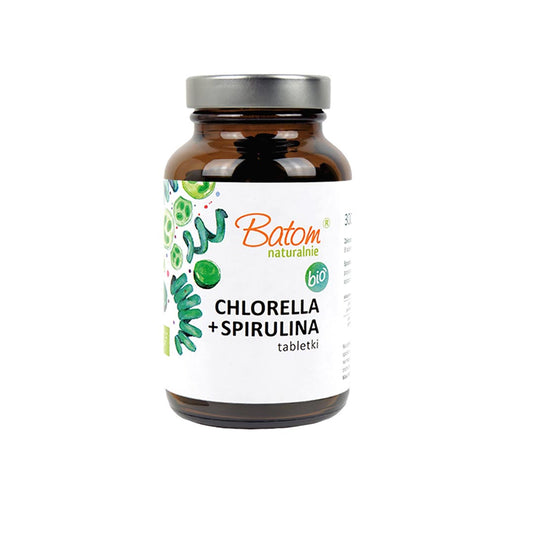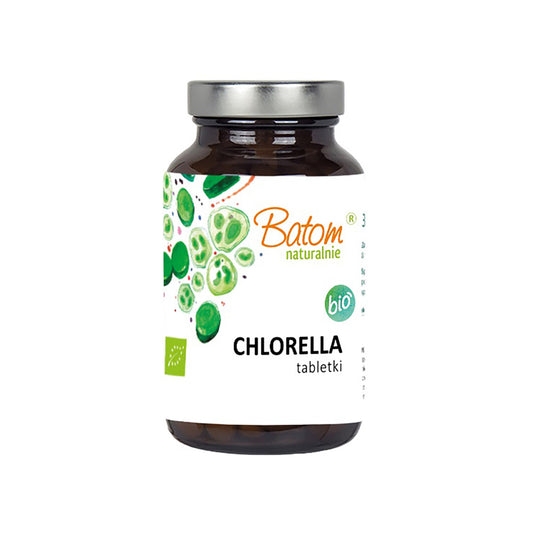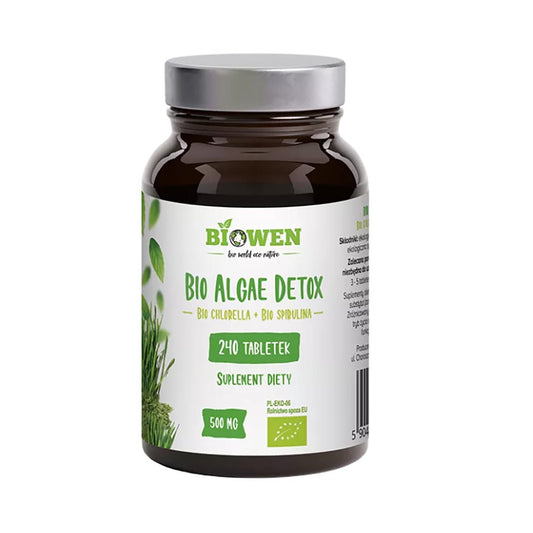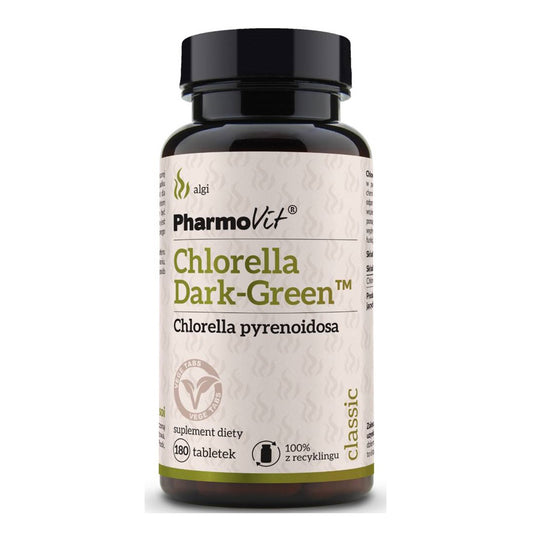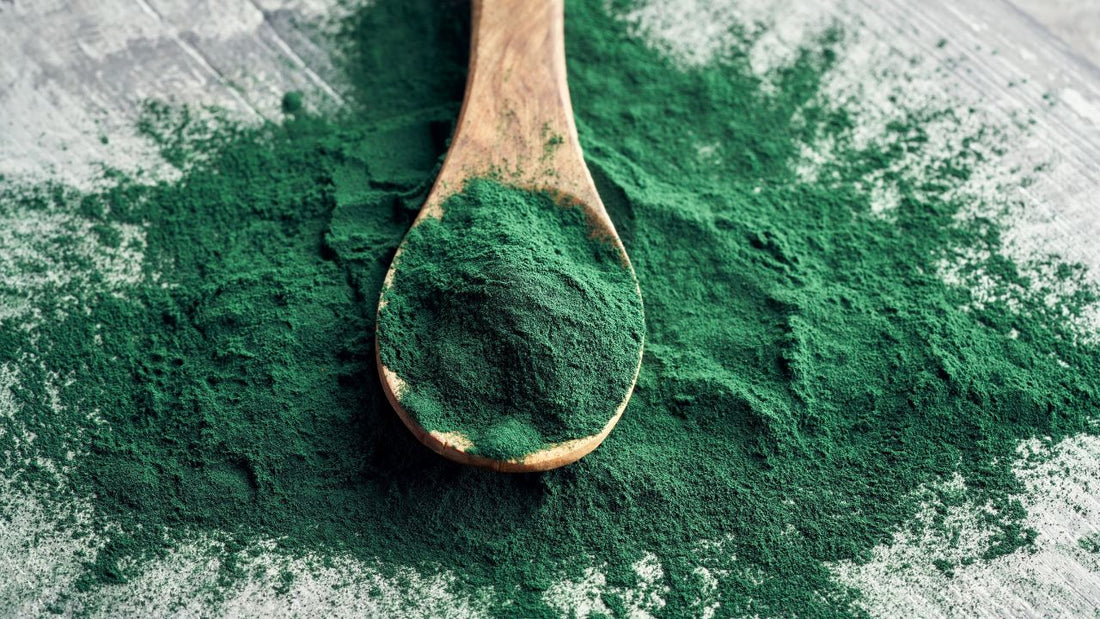
At the top of superfoods: Health benefits and uses of Spirulina and Chlorella
Share
Algae in nutrition – the power of nature for your body
Microalgae, such as spirulina and chlorella, have become a popular part of the diet of health-conscious people. These nutrient-rich superfoods offer a natural way to support the body's well-being and increase energy for everyday life. Microalgae have been used as food for centuries in various cultures, but modern research has brought their benefits to a wider audience.
Spirulina and chlorella differ slightly in both their composition and properties, but both provide a wealth of nutrients in a small serving. Let's first look at the general properties of these microalgae and then take a closer look at the benefits of each.
Why choose algae products?
Microalgae, such as spirulina and chlorella, are an easy and effective way to supplement nutrients. They are suitable for anyone looking to add natural and nutrient-rich options to their diet. When used correctly, algae supplements can support energy levels, immunity, and body cleansing. Start small and see how they fit into your daily routine!
- Did you know? Algae products are also environmentally friendly, as their production requires significantly less water and land area compared to traditional protein sources.
Spirulina – nature’s protein powerhouse
Spirulina is a blue-green microalgae known for its high protein content and rich micronutrients.
Spirulina is one of the best superfoods in terms of nutritional value. Spirulina contains three times more protein than meat and is rich in iron, zinc, magnesium, manganese, sodium, potassium, copper, vitamins A and B1, B2, B3, B6 and B12. It contains up to 60–70% protein by weight, which makes it a great choice especially for vegetarians and vegans.
A single teaspoon of spirulina meets the recommended daily requirement of vitamin A and iron. Spirulina is a particularly useful enzyme stimulant. It is rich in omega-3 and omega-6 fatty acids. Spirulina is rich in chlorophyll, or the leafy green. Spirulina has been called the second best source of gamma-linolenic acid (GLA) after breast milk. Spirulina also contains zeaxanthin and phycocyanin, as well as the rare phenylethylamine (PEA). The World Health Organization (WHO) has called spirulina "an interesting food, rich in protein, iron and essential nutrients."
Health benefits of spirulina
- Nutrient-rich superfood: Spirulina is an excellent source of B vitamins, iron, magnesium, and antioxidants. It provides energy and supports nervous system function.
- Did you know? Spirulina contains more iron per unit weight than spinach.
- Supports the immune system: Spirulina contains phycocyanin, which helps fight inflammation and strengthens the immune system.
- Did you know? Phycocyanin gives spirulina its deep blue-green color.
- Detox effect: Spirulina can help the body eliminate heavy metals and toxins.
- Did you know? Spirulina was used after the Chernobyl nuclear disaster to support the recovery of people exposed to radiation.
- Promotes energy levels: Its nutrients support the body's metabolism and can increase endurance.
- Did you know? Spirulina contains natural chlorophyll, which helps improve oxygen supply to cells.
Uses of Spirulina
Spirulina is easy to add to your diet in powder or tablet form. You can mix it into smoothies, juices, or even baked goods. Start with a small dose (for example, 1 teaspoon) and increase as needed.
Chlorella – the green detox specialist
Chlorella, a freshwater or saltwater algae, is a microscopic, single-celled algae. Seaweed keeps the body in good shape and contributes to the health of the immune system. Chlorella is rich in various vitamins, such as vitamin A (from carotenoids), several B vitamins, and vitamins E and K. Chlorella is rich in chlorophyll, which helps the body cleanse itself.
Chlorella's name refers to its high chlorophyll content, which makes it a powerfully refreshing and invigorating food. 100g of chlorella contains 4g of chlorophyll, which is more than any other substance on earth. The molecular structure of chlorella is also similar to that of human red blood cells, which means it can increase the oxygen uptake of cells. Chlorella also contains important digestive enzymes and binds toxins in the gut, balancing the healthy bacteria in the gut while quadrupling the number of good bacteria and freshening breath. Chlorella is also linked to a positive state of mind.
Health benefits of chlorella
- Rich source of vitamins and minerals: Chlorella is rich in vitamins C and B12, as well as iron and zinc.
- Did you know? Chlorella is one of the few plant sources that contains active vitamin B12.
- Effective detox effect: Chlorella binds heavy metals and helps the body eliminate toxins.
- Did you know? Chlorella's cell wall contains special compounds that help bind heavy metals from the body.
- Supports digestion: Fiber-rich chlorella promotes a balance of gut bacteria and aids in digestion.
- Did you know? Chlorella is considered a prebiotic that feeds the good bacteria in your gut.
- Immune system support: Chlorella can strengthen the body's defenses and improve overall fitness.
- Did you know? Chlorella contains over 50% protein and is rich in essential amino acids.
Uses of Chlorella
Chlorella is available in tablet, capsule or powder form. It has a slightly stronger taste than spirulina, but it is great in smoothies or other drinks. Start with a small dose and follow the dosage instructions on the package.
Combining Spirulina and Chlorella
Spirulina and chlorella complement each other, and many people choose to use them together to get the best benefits of both types of algae. Spirulina provides energy and is rich in protein, while chlorella cleanses the body and supports digestion. Combine these superfoods into your daily routine to reap the benefits of overall well-being.

